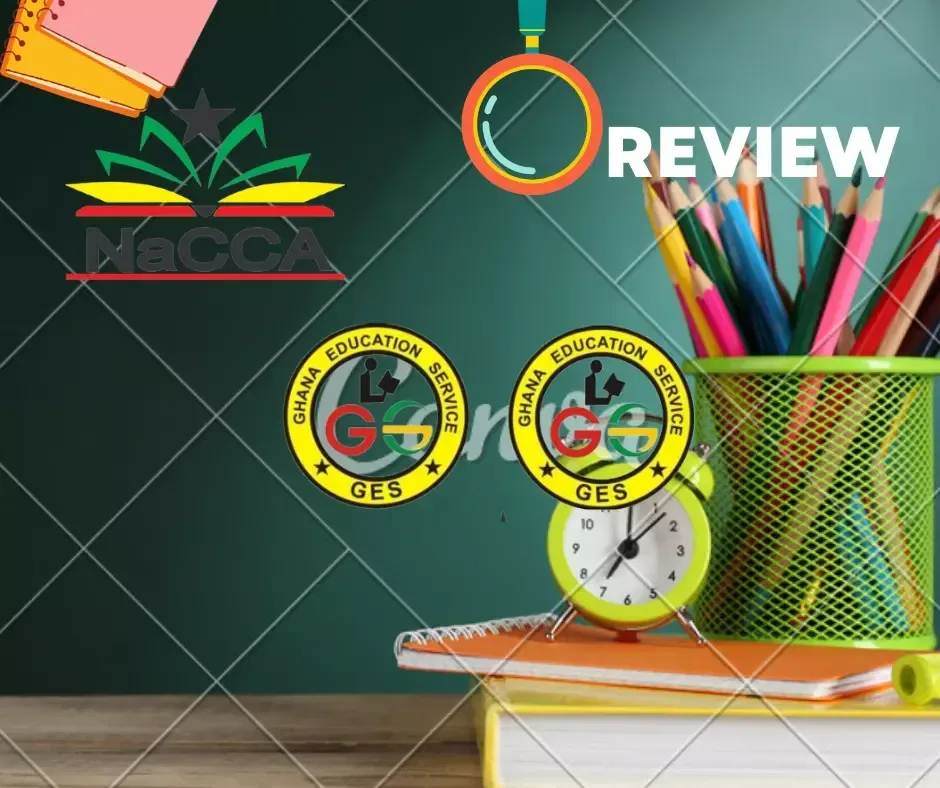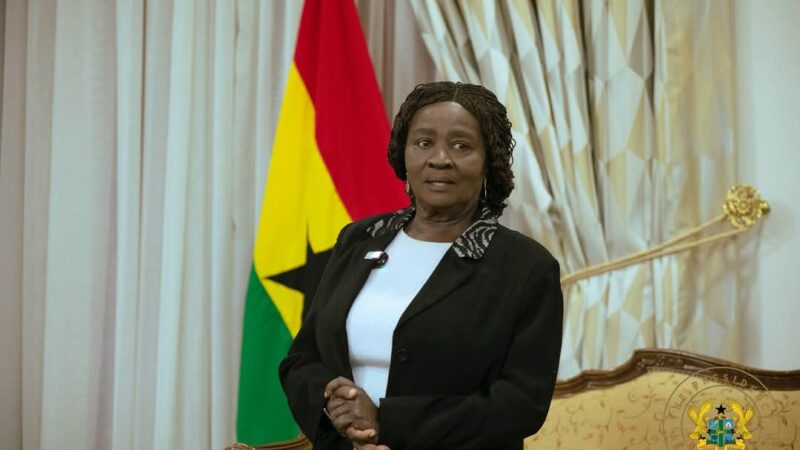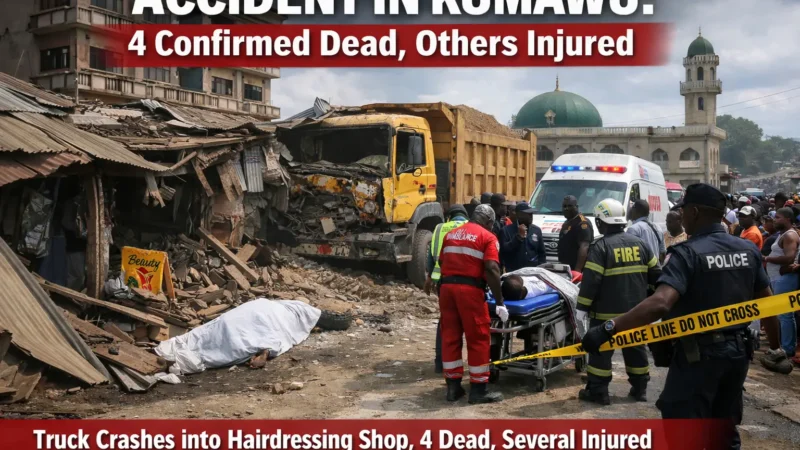Did you know that in Ghana, the curriculum used by pre-tertiary schools is expected to be changed every five (5) years?
Are you aware that it took almost twelve (12) years before the last one was reviewed to make way for the current curriculum in use?
What is the nature of the current curriculum being used in Ghanaian schools? Does it address the educational needs of Ghana given how the world is turning into a technological den and all?
For answers to these questions and more, keep reading this article as it will provide all the salient information you need to know about the current school curriculum. Let us get started.
We have already discussed the concept of curriculum in an earlier post. If you have not read it, you may want to quickly go through before continuing with this article. It would help enhance your understanding of today’s discussion.
Click here to Read on Curriculum for Pre-tertiary Schools in Ghana
In today’s discussion, I would like to bring you up close and personal with Ghana’s Current Curriculum and everything in-between.
We have said the Curriculum in simple terms is a plan that spells out all the things students will learn in a school or a course. Curriculum includes a list of subjects, topics, and other activities designed to help people gain knowledge and skills in a structured way.
Review of the Pre-tertiary School Curriculum in Ghana
Ghana has undertaken a massive review of its “Old Curriculum“. The “old curriculum” was known as Objectives-Based Curriculum.
The review of the objectives-based curriculum for pre-tertiary schools in Ghana was done in order to bring into force a new curriculum intended to meet the current needs of the country.
Ghana is determined to speedily improve the kind of education it provides to its students, especially when it comes to providing quality education for all. The structure and content of the old curriculum that existed before this change was such that it encouraged rote learning and simply helped students to master passing examinations. This therefore needed to change to give way for a new curriculum that seeks to nurture values, and raise literate, confident and engaged citizens.
The new curriculum places emphasis on science and mathematics education. It is expected that when learners gets to the tertiary education level or even enter the world of work, these mathematics and science skills will serve as the building blocks for success.
The new curriculum for Kindergarten (KG) and Primary Schools started to used in schools in 2019. Teachers across the country were trained on it for a week before full roll out. This new curriculum is referred to as the Standards-Based Curriculum.
The curriculum for Junior High Schools (JHS) was NOT rolled out in the same year. It was fully ready in 2022. JHS teachers nationwide were given 3-days intensive training to equip them the needed understanding for a smooth implementation.
How Often Should Curriculum be Reviewed?
The review that brought about the new curriculum was led by the NaCCA. NaCCA is the National Council for Curriculum and Assessment. Previously, NaCCA was only a division under the Ghana Education Service (GES) as the Curriculum Research and Development Division (CRDD).
It is the national agency that operates as a statutory Council. It operates under the Education Regulatory Bodies Act of 2020, Act 1023. It is charged with the design and development of educational curriculum, writing, reviewing and approval of textbooks, assessment, design of manuals and reports, and training programmes on curriculum activities at the pre-tertiary level in Ghana. Its scope however, does not include the technical and vocational institutions. We will discuss more about the NaCCA in a different article.
According to NaCCA, the Ministry of Education expects to have the curriculum reviewed every five (5) years. However, technical challenges has not always made it possible this way especially in the last 20 years before this new Standards-Based curriculum.
The new curriculum is a complete shift from the old system; it promotes building the character of learners, putting important national, social and emotional values in learners, and helping to raise students who are not just literates but very confident and actively engages in national issues and events.
The new curriculum places emphasis on science and mathematics education – these are the current areas that developed nations are focusing on today. When students master these subject areas at the pre-tertiary level of education, it becomes easy to build on them when they continue their education at the tertiary level.
Even when students choose career paths, and decide to enter the world of work instead of schooling, “grounded” knowledge in mathematics and science becomes building blocks for their success.
Development of the Current Curriculum
Why was it necessary to introduce or change the curriculum?
It focusses on ensuring that students are fluent in four (4) core areas called the 4Rs. The four Rs represent each of the following: Reading, wRiting aRithmetic and cReativity.
The main aim is to make students lifelong learners who are also digitally fluent.
Lifelong learners do not stop learning after school but throughout their entire life outside formal education, they willingly continue to seek knowledge that will develop and sharpen their skills and abilities.
Digitally Fluent Students have deep understanding in using digital technologies for various purposes, including for communication, collaboration, problem-solving, and information management.
The Standards-Based Curriculum (SBC) is expected to address some challenges that the previous curriculum (objectives-based curriculum) had and to ensure that the content of the curriculum is made to align with international educational standards.
It puts the contents under Five (5) Key Phases. These Key Phases are:
- Key Phase 1 (Foundation Level): KG 1 & 2
- Key Phase 2 (Lower Primary): B1 to B3
- Key Phase 3 (Upper Primary): B4 to B6
- Key Phase 4 (Junior High School): JHS 1 – JHS 3 (B7 – B9)
- Key Phase 5 (Senior High School): SHS 1 to SHS 3 (B10 – B12)
Primary School Curriculum
The curricula for Key Phase 1, Key Phase 2 and Key Phase 3 were developed and begun full implementation in September 2019. NaCCa has named this curriculum “the Standards-Based Curriculum”.
Each of these Key Phase has specific subjects to be studied by learners at that level.
Do you know the subjects (now called Learning Areas) for the new standards-based curriculum for primary school?
Find out from here: https://nacca.gov.gh/learning-areas-subjects/
A few years after it was rolled out, NaCCA has already detected areas that need to be reviewed. Currently, there are suggestions to take off Our World Our People (OWOP), which was a key subject/learning area for Key Phases 1 to 3 on account of some content being superfluous or redundant with content in other areas of learning.
Secondary School Curriculum
The curriculum for Junior High Schools began implementation in the 2021/2022 academic year. Their Curriculum is named “the Common Core Programme (CCP) curriculum”. Significant changes were made in the learning areas. Learning Areas refers to the subjects to be studied as well as the approaches to teaching and assessment.
Senior High School (Key Phase 5) Curriculum is expected to begin running in 2024 if everything goes according to plan. This is the “other half” of the CCP curriculum that begins at key phase 4. Some consultative processes for this phase are far advanced. Some key national agencies such as the National House of Chiefs, National Parents Association, as well as the Conference of Heads of Assisted Secondary School (CHASS) were all engaged during the drafting of the new curriculum for Senior High Schools.
What are the learning Areas or Subjects of study at the JHS level in the new curriculum?
The CCP curriculum comprises the following learning areas:
- Mathematics
- Science
- Social Studies
- Creative Arts and Design
- Computing
- Languages (English Language, Ghanaian Language, French, and Arabic)
- Career Technology
- Social Studies
- Religious and Moral Education
- Physical and Health Education
Find out and Download Copies of the Curriculum/Syllabus for each Subject Area Here: https://nacca.gov.gh/common-core-programme-ccp/
The National Curriculum Framework (NCF)
The curriculum is quite broad with too many curricular aims. This mostly makes it difficult for Teachers to teach and test learners on all curricular aims.
NaCCA has therefore developed a National Curriculum Framework that holds Teachers and their Students accountable to high levels of required achievements.
This is a document that outlines how the curriculum should be, how we should carry out future reviews so that anytime there is a change in any part of the curriculum, it will align with national interest.
In the NCF, Ghana as a nation now has a range of areas that we all have agreed to focus on for teaching and learning.
This makes it possible for the nations to hold duty bearers (especially teachers and learners) accountable to high levels of desirable achievements in education.
You can download a copy of the NCF here: https://nacca.gov.gh/wp-content/uploads/2019/04/National-Pre-tertiary-Education-Curriculum-Framework-final.pdf
Cross-Curriculum Issues (Core Competences)
In the new curriculum for pre-tertiary schools in Ghana, there are some prescribed body of knowledge and skills that every teacher, regardless of which level you are teaching, is expected to help his/her learners to develop.
These body of knowledge and skills are supposed to serve as the core or necessary skills needed by each learner in order to competent enough and to be able to have a smooth transition from one subject to the other, or from one grade to other or even from one level of education to the other.
It is expected that once the teacher uses the right approach during teaching and learning, the students/learners will integrally acquire these core skills.
What are the Core Competencies or the Cross-Cutting Curriculum Issues in the new Ghanaian Curriculum?
- Critical Thinking and Problem Solving (CP)
- Creativity and Innovation (CI)
- Communication and Collaboration (CC)
- Cultural Identity and Global Citizenship (CG)
- Digital Literacy (DL)
- Personal Development and Leadership (PL)
Assessment in the New Curriculum
How is assessment done in the new curriculum? In the new curriculum of Ghana, teachers are expected to involve assessment for learning, assessment as learning and assessment of learning.
We will discuss these forms of assessment in detail in another topic where we will take a deep look into meaning, forms, characteristics, and why we assess learners in our classrooms.
Assessment in the standards-based curriculum will be both formative and summative. The outcome of both will however be used to “move learning forward”.
During assessment, the teacher is supposed to place emphasis essential outcomes in the three (3) domains of learning. (i.e. affective, cognitive, psychomotor). There must also be emphasis on assessing the 4Rs in various subject areas as well as the core competencies. (Do you remember them?).
To monitor learner progress, teachers are expected to keep relevant records of students’ learning. The following records are very important when we talk of assessment in the new curriculum:
- Learners’ Progress Record (Cumulative Record)
- Learners’ Report Card
- School-Based Assessment (SBA) Register
Teachers assign tasks to test learners’ level of progress through class exercises, Class Assessment Task (CAT), Portfolio, Quizzes, End of term, Journal entries, Class tests (written, oral, aural and/or practical), End of year, Project work, Class Assessment Task (CAT), Checklist, and Questionnaire.
Apart from the above forms of internal assessments, there shall also be the introduction of a National Standards Assessment Test (NST).
This will come to replace earlier forms of assessments like the National Education Assessment (NEA), the National Early Grade Assessment (EGRA) and the Early Grade Mathematics Assessment (EGMA).
This NST is mainly to aimed at collecting data on how well learners in Ghana’s schools are meeting the expectations of the curriculum and if there are any gaps to filled.
NST is expected to be taken by students in certain carefully selected grade levels; BS 2, BS 4, BS 6 and BS 8.
This is what will be used to measure how well learners are performing at the national level.
Plans are also in place to institute a modern way of assessment through the use of online applications. This assessment will be called the National High School Online Examination.
BECE will still assess learners after the end of junior high school education. There are plans to make revision in the form and number of subjects though.
For information on Basic Things to Know About the BECE, click here!
Learning and Teaching Approaches in the New Curriculum
The new curriculum emphasizes creative and inclusive methods of teaching that are based on actual enquiry-based learning, collaborative and cooperative learning, differentiated learning and holistic learning as well as cross-disciplinary learning.
Learners must be actively engaged in classroom activities and projects (both in and outside the classroom).
It encourages project work, group work, individual tasks, community service which offers learner the opportunity to nurture, love and care for, and solve identified problems in their communities.
Teachers are encouraged to use classroom activities that best suit learners and content. Activities include: Brainstorming, Observation, Tell Your Neighbour, Think-Pair-Share, Think-Pair-Square, Debates, Post-It/Slate/Mini-Whiteboard/Rough-Workbook, Know-What-Learnt (K-W-L), Response Partner, Exemplar Work, 2 Star and a Wish, Traffic Light, Hand Signal, Show and Tell, Learning Market, Articulate then Answer and more.
Indeed, we have covered so much. There are actually a lot of interesting stuff about the new curriculum that we need to know. But we do not want to stuff them all up here to bore you. We will break them down into single separate articles and discuss them in simple and easy to understand fashion.
For more keep coming back and don’t forget to Share with your friends especially Teachers in Ghana who are preparing to write their Promotion Exams.





Am student in Uganda at kassangati prograssive in kassangati, this new curriculum is making some of our parents not to pay school fees meaning that they want us to go institutions that students from new curriculum can not be professional at ajob that they are just wasting money to pay school fees for us ,so it leading to school drop out for some students like me that is the problems of changing the curriculum sir😭😢😥
Thank you Nabbasa Bridget for sharing your experience with us. GH Educate will entreat you to develop interest and passion for your schooling as you align it with your future aspirations.